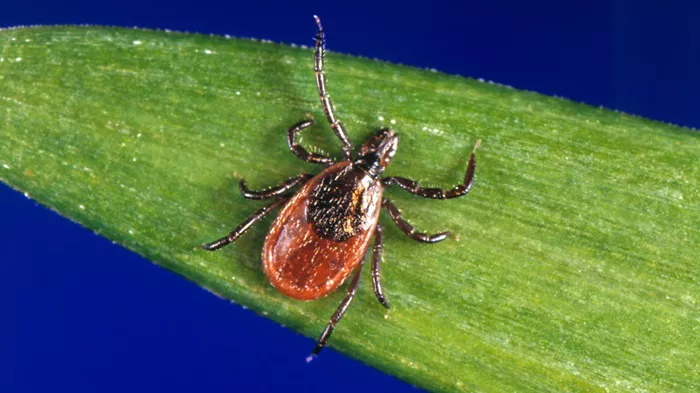Allergies are a widespread condition affecting millions around the world, often bringing discomfort like sneezing, itching, and nasal congestion. But some people with allergies experience something more alarming — bloody noses. This symptom can be unsettling and confusing, especially when it seems to come out of nowhere. Why do allergies sometimes cause your nose to bleed? What exactly happens inside your nose to trigger this? Understanding the connection between allergies and nosebleeds can help you recognize the causes and find better ways to prevent or treat them. This article explores the underlying reasons behind allergy-related nosebleeds, the biological processes involved, and practical advice for managing this tricky symptom.
How Allergies Affect Your Nose
To understand why allergies cause bloody noses, it’s important to first know what allergies do inside your nose. When you come into contact with allergens such as pollen, dust mites, or pet dander, your immune system treats these harmless substances as threats. This triggers an immune response designed to fight off these invaders. One of the primary chemicals released during this process is histamine, which causes swelling and inflammation in the nasal lining.
This inflammation leads to several symptoms like nasal congestion, itching, and increased mucus production. The tissues inside your nose become swollen and sensitive. Blood vessels in the nasal lining also expand and become more fragile. This fragile state makes the small blood vessels more prone to breaking, which is one of the main reasons a bloody nose can occur during an allergic reaction.
The Fragility of Nasal Blood Vessels in Allergies
The inside of your nose is lined with very thin, delicate blood vessels. These tiny vessels sit close to the surface of the mucous membrane, which makes them vulnerable to damage. During an allergic reaction, inflammation causes these vessels to swell and become more fragile. This fragility increases the risk of tiny tears or ruptures in the blood vessel walls.
Moreover, repeated sneezing, nose blowing, or rubbing your nose to relieve itching can physically irritate these delicate vessels. Each of these actions can cause minor trauma to the already sensitive nasal lining. When a small blood vessel breaks, blood leaks out, resulting in a nosebleed. For people with allergies, frequent nasal irritation increases how often they might experience bloody noses.
How Dryness Makes Nosebleeds More Likely
Another important factor that links allergies to nosebleeds is dryness. Allergies can cause you to breathe through your mouth more often, especially when your nose is congested. Breathing through the mouth dries out the nasal passages. Also, the use of nasal sprays, especially decongestant sprays, can dry the nasal lining.
Dry nasal membranes tend to crack and peel. These tiny cracks become openings where blood vessels can rupture easily. Dry air, whether from indoor heating or environmental conditions, worsens this problem. When combined with inflammation from allergies, dry nasal tissues create a perfect setup for frequent or severe nosebleeds.
Why Frequent Nose Blowing Can Trigger Bleeding
When your nose is congested from allergies, your natural reaction is to blow it often. While this helps clear mucus, blowing your nose too hard or too frequently can cause pressure and strain on the blood vessels inside your nose. This repeated pressure can damage the fragile vessels weakened by inflammation.
Even gentle nose blowing can irritate sensitive nasal tissues if done too often. The cumulative effect of frequent nose blowing can create small tears, leading to bleeding. In people with allergies, this behavior is often unconscious because the nose feels constantly blocked or itchy, making it hard to resist.
The Role of Nasal Inflammation in Causing Nosebleeds
Inflammation is the body’s natural response to allergens. It causes redness, swelling, and increased blood flow to the affected area. In the nasal passages, this increased blood flow causes the blood vessels to swell and stretch. The stretching puts stress on the walls of these vessels.
Over time, inflammation can thin the nasal mucosa, weakening its protective barrier. This makes the tissue more susceptible to injury. Chronic inflammation from ongoing allergies keeps the vessels in a delicate state, making nosebleeds more frequent or severe when they occur.
How Allergic Medications May Affect Nosebleeds
Ironically, some medications used to treat allergies can contribute to nosebleeds. For example, nasal decongestant sprays help reduce swelling but can dry out the nasal passages if used too often. This dryness increases the chance of cracks and bleeding.
Similarly, antihistamines reduce inflammation but may cause dryness as a side effect. Nasal corticosteroids, often prescribed for allergies, help control inflammation but can thin the nasal lining with prolonged use. While these medications provide relief, improper or excessive use can raise the risk of nasal bleeding.
When to Be Concerned About Allergy-Related Nosebleeds
Most nosebleeds caused by allergies are minor and can be managed at home. However, frequent or heavy nosebleeds should not be ignored. If you experience nosebleeds that last longer than 20 minutes, occur frequently, or are associated with other symptoms like bruising or bleeding from other areas, you should see a healthcare professional.
Chronic nosebleeds may indicate other underlying conditions such as nasal infections, blood clotting disorders, or structural issues inside the nose. A medical evaluation helps rule out serious problems and ensures proper treatment. For allergy sufferers, managing nosebleeds is part of a broader approach to controlling symptoms and protecting nasal health.
Practical Tips to Prevent Nosebleeds During Allergy Season
Preventing nosebleeds when you have allergies involves protecting the delicate tissues inside your nose and controlling allergic inflammation. Keeping your nasal passages moist is key. Using saline nasal sprays regularly can help wash out allergens and keep the mucous membranes hydrated.
Avoiding excessive nose blowing and rubbing is important. When you do blow your nose, do it gently. Using a humidifier at home adds moisture to dry air, especially in winter months or heated indoor environments. Staying well-hydrated by drinking plenty of fluids supports healthy mucous membranes.
Treating allergies effectively is also crucial. Follow your doctor’s advice on using allergy medications properly. Avoid overusing nasal sprays that can dry out your nose. If you experience persistent nosebleeds, discuss alternative treatments with your healthcare provider.
Conclusion
Allergy-related nosebleeds are caused by a combination of fragile nasal blood vessels, inflammation, dryness, and frequent nasal irritation. The delicate tissues inside your nose become vulnerable due to allergic inflammation, making small blood vessels more prone to breaking. Dryness and frequent nose blowing add to the risk.
Knowing why allergies cause bloody noses helps you take steps to prevent and manage this uncomfortable symptom. Maintaining nasal moisture, avoiding harsh nose blowing, and controlling allergies with appropriate treatment can reduce nosebleeds. If nosebleeds become frequent or severe, seeking medical advice is important for ruling out other causes and ensuring proper care.
By understanding the connection between allergies and nosebleeds, you can protect your nasal health and breathe more comfortably through allergy season and beyond.
Related Topics



































